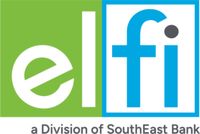Best lenders to refinance parent PLUS loans

Key takeaways
- Parent PLUS loans are offered to parents by the federal government to help cover their child’s higher education expenses.
- Refinancing can help if you want to lower your monthly payment, transfer the loan to your child or make it more manageable.
- You can also refinance your parent PLUS loans to secure a lower rate.
- Keep in mind that refinancing parent PLUS loans means forfeiting borrower protections.
- Weigh the pros and cons and compare loan quotes if you decide to move forward with refinancing.
A parent PLUS loan is a federal loan that parents can take out to pay for their children’s education costs. These come with fixed interest rates and generous loan limits: The parent can borrow up to the cost of the child’s attendance each year, minus the student’s other financial assistance, and is fully responsible for repaying the debt.
While repaying parent PLUS loans, the higher interest rates and loan amounts tend to make them more expensive than a private student loan with a low rate over time. If you have a parent PLUS loan, and you’re looking for ways to make your payments more manageable, refinancing may help.
Best lenders for refinancing a parent PLUS loan
Bankrate selected lenders based on availability, affordability and customer experience.

SoFi
-
Founded in 2011, SoFi is a well-known online lender that offers student loans, personal loans and even mortgages and investing products. You can refinance parent PLUS student loans at competitive rates to make the balances more manageable and save on borrowing costs. Rate discounts are also available to existing SoFi customers.
- Fixed APR from: 4.24% – 9.99%
- Variable APR from: 5.99% – 9.99%
- Loan term: 60 – 240 months
- Loan amount: $5,000

Education Loan Finance
-
Education Loan Finance (ELFI) opened in 1994 as a division of Tennessee-based SouthEast Bank. It originates and refinances private student loans for undergraduates, graduate students and parents. When you apply, ELFI will pair you with a student loan advisor who can walk you through the application process and answer any questions along the way.
- Fixed APR from: 4.88% – 8.09%
- Variable APR from: 4.74% – 7.86%
- Loan term: 60 – 180 months
- Loan amount: $10,000

Earnest
-
Earnest opened its doors in 2013 and was acquired by loan servicer Navient Solutions in 2017. Borrowers can choose from several repayment options and have access to generous forbearance programs if they hit financial trouble while in repayment. The flexibility offered by this lender makes it a viable option if you’re looking to refinance a parent PLUS loan.
- Fixed APR from: 4.45% – 9.99%
- Variable APR from: 5.88% – 10.49%
- Loan term: 60 – 240 months
- Loan amount: $5,000
How to refinance a parent PLUS loan
When refinancing a parent PLUS loan, you’ll take out a private loan, pay off the original debt and then pay down the new loan over time.
Typically, either you or your child can take out the new private loan — but if the new loan is in your child’s name, then you no longer have responsibility for the debt. The process you (or your child) would go through to refinance the parent PLUS loan can be broken down into three steps.
- Get rate quotes: Compare offers from multiple lenders to see what your interest rate and monthly payment would be. Some lenders offer prequalification to let you see if you qualify for the loan, which involves a soft credit pull that won’t hurt your credit.
- Apply for the loan: Once you’ve spotted a good deal, go through the application process to apply for the loan. This will involve a hard credit pull, and you may need to provide documentation. Once you’re approved, the lender will pay off your parent PLUS loan and issue the new loan. From there, you’ll make payments to a new loan servicer.
- Complete the refinance: Once you’re approved, the lender will pay off your parent PLUS loan and issue the new loan. From there, you’ll make payments to a new loan servicer.
If your child’s financial standing has improved since graduation, they may be eligible for competitive interest rates. This can make repayment easier if they take over the debt. Eligibility requirements vary with each lender, but your child will generally need a good credit history and enough income to afford the payments.
When to refinance parent PLUS loans
Refinancing any federal student loan comes with a major drawback — you lose borrower protections offered by the Department of Education. Still, it could be a viable option to consider if:
- You qualify for a lower interest than what you have now
- You want more affordable monthly loan payments
- You want to transfer the balances to your child
If you decide to move forward, get loan quotes from multiple lenders and compare interest rates, fees and repayment options to see how much you could save by refinancing. And if your child agrees to take over the loan, talk with them about transferring the debt to their name. Most importantly, help them figure out what they can afford.
Consolidating parent PLUS loans
If refinancing into a private student loan isn’t right for you, or you want to keep the protections that come with federal loans, consolidation is another option. With this move, the parent PLUS loan becomes a federal Direct Consolidation Loan.
A Direct Consolidation Loan won’t save you money in the long run, and this technique won’t allow you to transfer the debt to your child. But you might be able to lower your payments if you enroll in an income-driven repayment plan once you consolidate. You can also access other parent PLUS loan repayment options, such as Public Service Loan Forgiveness.
Depending on your balance, you can pay down the loan over 10 to 30 years. Keep an eye on interest costs, though. On a longer repayment schedule, you could pay more in interest over time.
Bottom line
A Parent PLUS loan is one tool that parents can utilize to help pay for the cost of their child’s education costs. If the repayment terms are no longer working for you, it is possible to refinance or consolidate the loan.
Shop around different lenders to determine which option is best for you, and consider a Direct Consolidation Loan if you would like to extend your repayment schedule and protect your child from having the debt transferred to them.
Why we ask for feedback Your feedback helps us improve our content and services. It takes less than a minute to complete.
Your responses are anonymous and will only be used for improving our website.
You may also like

When should you refinance your mortgage?

How to choose a mortgage lender: 5 tips

How to find the best FHA mortgage lender





